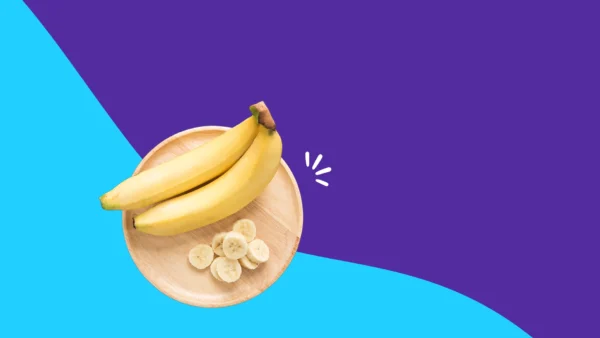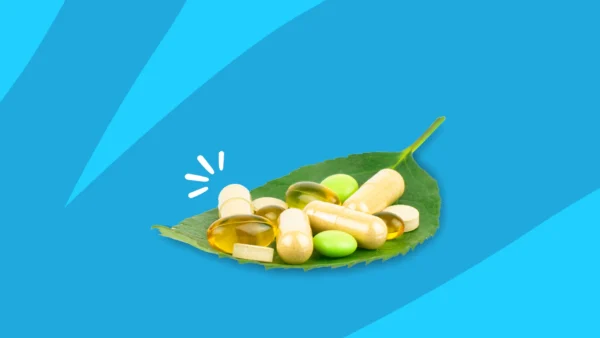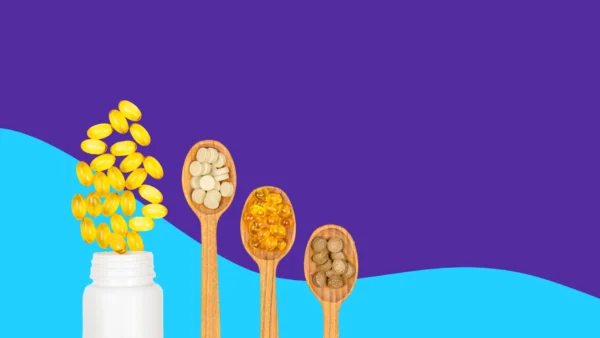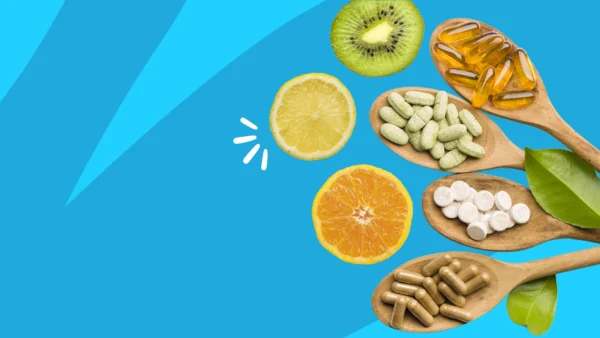Irritable bowel syndrome, or IBS, is a common problem of the gastrointestinal tract, affecting 10% to 15% of people in the United States. It causes symptoms such as:
- Abdominal cramping
- Bloating
- Gas
- Mucus in the stool
- Changes to bowel habits (frequency and appearance)
Some people with IBS have constipation or diarrhea, while others may alternate between the two. The disorder can cause discomfort but doesn’t cause damage to the intestines.
Researchers don’t know what exactly causes IBS, but have found that the disease impacts women twice as often as men. Most who are diagnosed with IBS are younger than 45. You’re also at a higher risk if you have a family history of IBS or mental health issues.
There’s no precise test for IBS. Your healthcare provider may take stool and blood samples and X-rays to rule out other conditions. They could also suggest a colonoscopy to look for changes or abnormalities in your bowel, such as colitis.
With IBS, symptoms will come and go, sometimes for the rest of your life. Although there’s no cure for the condition, it’s possible to manage it with your diet and medications. What you eat doesn’t cause IBS, but certain foods can sometimes result in a flare-up.
RELATED: IBS vs. IBD: Which one do I have?
The 3 best IBS diets
So which foods are safe to eat, and which ones should you avoid when you have IBS? Although certain types of foods can cause problems for some with IBS, there’s no clear answer or universal IBS diet that works for everyone.
“One particular food or food group may have a negative impact on one person, but may not have any impact on another,” says Elie Abemayor, MD, Chief of Division of Medicine, Gastroenterology, Northern Westchester Hospital in New York. And, he adds, symptoms can change over time in some patients. “People who are affected by dairy on Monday could have some dairy on Thursday and be fine.”
This lack of consistency in IBS symptoms can make it difficult to pinpoint which foods are causing them. People with IBS may keep a diary of what they eat and any associated bothersome symptoms to see if they can identify a trigger food and make dietary changes accordingly.
1. Low-FODMAP diet
Many healthcare providers will recommend an elimination diet for food intolerances and sensitivities. You’ll stop eating certain foods and then add them back one by one until you find the one that’s causing your symptoms.
A low-FODMAP diet is a standard elimination diet for IBS. FODMAP stands for fermentable oligosaccharides, disaccharides, monosaccharides, and polyols. The small intestine in some with IBS has trouble absorbing these specific types of carbohydrate, and after eating high-FODMAP foods, some people experience cramping, diarrhea, constipation, stomach bloating, and gas.
On a low-FODMAP diet, you’ll stop eating or cut back on:
- Fructans and GOS, which is found in wheat, rye, onions, garlic, and legumes
- Lactose
- Fructose, which is in honey, apples, and high fructose corn syrup
- Products with sweeteners ending in “–ol” (sorbitol, mannitol, xylitol, and maltitol)
The key here is that you eat low FODMAP foods, which means some of these foods can be tolerated in small amounts. The best resource for knowing what is safe and what isn’t is Monash University, which created the diet and has an app that identifies FODMAP levels in foods.
The low FODMAP diet is meant to be temporary. You’ll try it for a few weeks to see if your symptoms improve. If you feel better, you’ll slowly start to add FODMAP-containing foods back into your diet. Once you figure out which foods are causing your IBS symptoms, you can limit or avoid them.
Because this diet is a bit complex, it may help to work with a nutritionist or dietitian who is trained in the low FODMAP diet.
RELATED: What is lactose intolerance?
2. Gluten-free diet
Another option for relieving IBS symptoms is a gluten-free diet. Gluten is a protein in wheat, barley, and rye. You’ll find it in:
- Cereal
- Grains
- Pasta
- Many processed foods
Gluten-free diets are usually for people with celiac disease (gluten intolerance), but research shows that it can also help to ease symptoms in people with IBS as well.
3. High-fiber diet
For people with IBS with constipation (IBS-C), more fiber in their diet can soften stool and make it easier to pass, thus promoting more regular bowel movements.
“Our microbiome uses fiber to keep our gut healthy,” says Parastoo Jangouk, MD, a board-certified gastroenterologist at Austin Gastroenterology in Texas. “When you take fiber, your body turns it into short-chain fatty acids, which are the main fuel for our intestinal cells. A diet that’s diverse in plants and fiber is essential to keeping our gut healthy.”
Soluble fiber, the kind found in beans, fruit, and oat products, is thought to reduce IBS symptoms. Most Americans only eat around 10-15 grams of fiber a day but should aim for 25-35 grams. People with IBS who are sensitive to fiber should slowly add it to their diet, starting with 2 to 3 grams a day. Too much fiber before your body is ready can trigger gas and bloating.
9 IBS foods to avoid
Although IBS food triggers can vary from person to person, certain foods are more likely to cause problems. Your healthcare provider could suggest you cut back or eliminate these foods from your diet:
- Carbonated drinks: These beverages may cause bloating and gas, which can aggravate symptoms.
- Alcoholic drinks: Anyone who has had a hangover knows, alcohol can do a number on your insides. It can speed up the digestive tract, exacerbating diarrhea.
- Dairy: The lactose in milk and cheese can lead to cramping, diarrhea, constipation, stomach bloating, and gas for some people. IBS may be linked to lactose intolerance.
- Sugar: Certain types of sugar, especially fructose, can make IBS symptoms worse. IBS may be linked to sugar intolerance.
- Artificial sweeteners: High fructose corn syrup, sorbital, xylitol, and similar products can have effects similar to sugar on the digestive system.
- Processed foods: These foods tend to contain large amounts of sugar, chemical additives, and fat—all of which can trigger symptoms.
- Caffeine: Similarly to alcohol, caffeine speeds up peristalsis (contraction of the intestines), which can worsen diarrhea.
- Chemical additives: These can disrupt the gut microbiome, which can trigger IBS symptoms.
- Fatty foods: Foods with a high fat content can slow down bowel motility and can cause increased gas for people with IBS.
Other IBS treatment options
Along with changes to your diet, there are other ways to prevent and treat an IBS flare-up.
Medication
Drug therapy is best for people with moderate to severe irritable bowel syndrome who don’t get better with dietary changes.
- Laxatives treat constipation caused by IBS. Milk of Magnesia (magnesium hydroxide oral) and Miralax (polyethylene glycol) are two over-the-counter options.
- Fiber supplements like Metamucil (psyllium) can make it easier to pass stool.
- Anticholinergics/Antispasmodics such as Bentyl (dicyclomine) and Levsin (hyoscyamine) work to ease abdominal pain or discomfort, usually after eating.
- Antidiarrheals prevent and relieve diarrhea. Brands include Imodium (loperamide), which is OTC, and Lomotil (diphenoxylate and atropine), which is a prescription.
- Anti-anxiety drugs can help with emotional distress caused by IBS. Research shows a link between IBS and anxiety, depression, and other mood disorders.
- Antidepressants, in low doses, may lower the intensity of pain signals from the gut to the brain. Your healthcare provider may prescribe a tricyclic like Elavil (amitriptyline), Tofranil (imipramine), or Pamelor (nortriptyline).
- Pain medications such as Lyrica (pregabalin) or Neurontin (gabapentin) may relieve IBS associated abdominal pain and bloating.
- IBS-targeted prescription medications are shown to be effective in treating symptoms of IBS like diarrhea and constipation. They include Lotronex (alosetron), Xifaxan (rifaximin), and Viberzi (eluxadoline) for diarrhea predominant IBS, and Amitiza (lubiprostone), Linzess (linaclotide), and Trulance (plecanatide) for constipation and IBS.
RELATED: Find more IBS medications
Lifestyle factors that can help IBS
People with mild irritable bowel syndrome can also manage their symptoms with lifestyle changes like drinking plenty of water, exercising regularly, and getting enough sleep. There’s also counseling, particularly for those dealing with depression or stress, which may make symptoms worse.
Complementary health approaches
There’s no firm evidence, but some research suggests that medical approaches outside of conventional medicine may be beneficial to people with IBS.
- Acupuncture: Research is mixed about the benefits of this therapy, which involves inserting thin needles into your skin at strategic points. One clinical trial showed people who received the treatment saw improvement, while another found that actual acupuncture wasn’t better than the simulated kind.
- Hypnotherapy (hypnosis): There’s some evidence that gut-directed hypnotherapy (GDH) improves IBS symptoms, anxiety, depression, disability, and quality of life, but more research is needed.
- Mindfulness: This type of focused-based meditation may help people with IBS, but there’s not enough evidence to know for sure if it works.
- Yoga: One small study shows that yoga could improve abdominal pain, constipation, and nausea, and the effects lasted for at least two months.
- Dietary supplements: Researchers have investigated supplements like Chinese herbs, slippery elm, aloe vera juice, and probiotics for IBS, but it’s difficult to know how effective they are until more thorough studies are completed. There is fairly good data showing that peppermint oil can help symptoms of IBS.
Some dietary supplements can cause side effects or may interact with prescription medications. Before using a complementary health approach, talk to your healthcare provider. They can offer suggestions for holistic practitioners and let you know if supplements will interact with medications you’re currently taking.
RELATED: How to safely manage IBS symptoms during pregnancy
Fecal microbiota transplantation (FMT)
This investigative new IBS treatment is when a healthy person’s processed stool is placed into the colon of someone with IBS. The idea behind the procedure is to replace healthy intestinal bacteria. Researchers are currently conducting clinical trials into FMT, looking into different uses for this procedure, including IBS, Crohns, and colitis. Currently, the only approved use of FMT is for recurrent or severe Clostridium difficile colitis.
Bottom line
IBS is a complicated condition. There’s no exact cause or method of diagnosis, and since symptoms vary from one person to the next, there’s no standard therapy. But, science is making progress.
“It’s an exciting time for IBS research,” says Dr. Jangouk. “We’re learning more and more, specifically about brain-gut interaction, the digestive system, and gut microbiome. In the next 10 years, we’re going to have a better understanding of what’s happening with this disease and its pathophysiology.”
For now, Dr. Abemayor says an important first step in treating IBS is for doctors and patients to acknowledge that symptoms are real. “People think it’s just in their head. It’s not. It’s a condition where there are physiologic differences in people who have [IBS] and people who don’t. Validating their symptoms is therapeutic for some people.”
It may take some trial and error, but most people diagnosed with IBS can manage their symptoms through diet and lifestyle changes. Those with more severe IBS may need medication.
Look out for changes to your symptoms or if they progress beyond what’s typical of IBS, such as:
- Weight loss
- Trouble sleeping due to IBS symptoms
- Rectal bleeding
- Iron deficiency anemia
- Unexplained vomiting
- Trouble swallowing
- Abdominal pain that continues after passing gas or a bowel movement
- Sudden onset of IBS symptoms, especially after age 50
These could all be the signs of a more serious condition like colon cancer. Contact your healthcare provider with any concerns.











